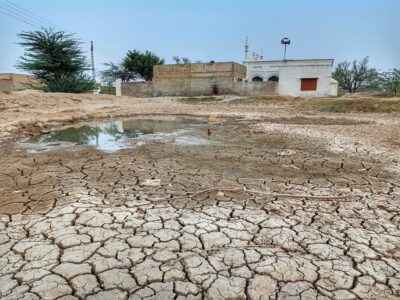The rural communities of Ceará, Brazil, had long been accustomed to drought and the problems that result: food insecurity, death of livestock, and conflict over scarce water resources. While Ceara’s problems may have been typical of a water scarce region in the developing world, the work of the Columbia Water Center and PepsiCo Foundation has ensured that the approach to these problems is anything but.
As one of several PepsiCo Foundation funded projects to improve water security and rural livelihoods, the CWC’s work in Ceará has engaged international and local expertise in engineering, hydrology, agriculture, public policy and finance to test and develop cost effective solutions for water sustainability. In Brazil, the project has been a model for incorporating the interests of stakeholders in the government, community, and the private sector in the drought-stricken state of Ceará to ensure the sustainable management of scarce water resources.

To share the successes of the Ceará project, PepsiCo invited two CWC scientists- Shama Perveen, Associate Research Scientist at CWC, and Assis de Souza Filho, Professor at the Federal University of Ceará and Adjunct Associate Research Scientist at Columbia University- to discuss the CWC-led projects on water and sustainable agriculture at two major events: the Rio+20 Corporate Sustainability Forum on June 17 and the Business Action for Sustainable Development’s (BASD) Rio+20 Business Day on June 19.
The two scientists spoke alongside PepsiCo representatives to share the project’s findings on best practices, and to contribute to conversations on business practice, the human right to water and sanitation, water security and access, and agricultural water use efficiency. Shama Perveen and Robert ter Kuile, Senior Director of Environmental Sustainability at PepsiCo, spoke during the Rio+20 Corporate Sustainability Forum and fielded several questions with regard to the metrics businesses employ for assessing the effectiveness of its environmental efforts.
Drs. Perveen and de Souza Filho also participated in a water breakout session at the Business Day event at a session called “Water’s fundamental role for business in green growth and poverty alleviation.” The session examined four key business messages on water that BASD has sent to the UN Commission on Sustainable Development – to determine what actions they can take to convey urgency to policy makers and consumers regarding the need to increase access to safe drinking water and sanitation, and implement coordinated processes in the water, energy, agriculture nexus, among other things.
Access to safe drinking water and sanitation is a pressing concern for more than half of the world’s population. The Millennium Development Goals (MDGs) have focused their efforts on this topic but more progress is needed. During the intensive discussions around the topic several issues were raised with regard to the MDG goals and how businesses can include more long term strategic plans for water risk assessment and sustainability alongside its corporate social responsibility efforts and how stakeholder collaborations and community participation can be localized but sustainable. The responses from the sessions will ultimately be compiled and passed on to the diplomatic negotiations taking place at Rio+20.

PepsiCo’s Director of Agricultural Sustainability, Ian Hope-Johnstone, was also in Rio talking about the importance of sustainable agriculture for PepsiCo as a food and beverage company. PepsiCo and the CWC scientists have been involved in many conversations in Rio regarding the water and food security nexus. Lately there has been an increased understanding that water sustainability cannot be achieved in isolation and that integration of food-energy-climate goals have to be seen as a shared objective.
The discussions at these events will help the private sector determine its role in promoting the sustainable use of resources, and serve to contribute to larger discussions relating to food security, climate change, and, of course, water scarcity and sanitation. And while many next steps are needed to tackle these challenges, the successes of the CWC and PepsiCo Foundation projects show us that sustainable change is possible, one community at a time.
Scientists from other research groups at the Earth Institute are also in Rio. For more about this, see State of the Planet’s Rio+20 blog feature.



